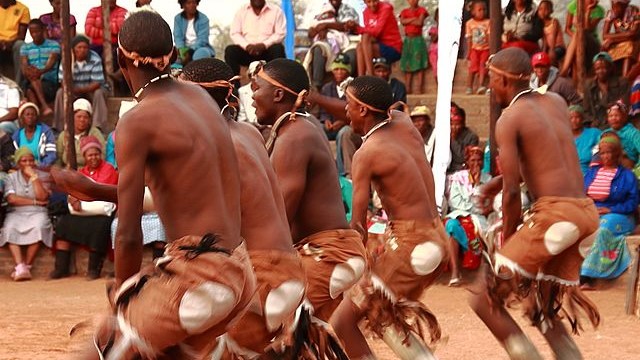From the red sands of the Kalahari to the lush waterways of the Okavango Delta, Botswana’s cultural calendar is punctuated by festivals that bind communities and preserve traditions. These gatherings, rooted in generations-old customs, serve as both a reflection of heritage and a stage for contemporary expression.
Across the country, festivals unfold with a rhythm that mirrors the seasons. In the village of Mochudi, the Bontle Festival honors the heritage of the Bakgatla people. Here, traditional dance troupes stamp the dust into life, drummers set a steady pulse, and artisans display beadwork and woven baskets in designs handed down through centuries. Storytellers, gathered beneath acacia trees, weave narratives of ancestors and origins—oral histories that anchor the present to the past.
Far to the northwest, in the frontier town of Maun, the Maun International Arts Festival transforms open squares into open-air galleries and performance spaces. Painters work in the shade of canvas canopies while poets recite verses in Setswana and English. The program spans from modern theatre to indigenous music, offering a glimpse of a nation comfortable in both its heritage and its evolving creative voice. For many artisans, the festival is more than a celebration; it is an economic lifeline that sustains craft traditions in a modern marketplace.
The Botswana Music Festival adds another dimension to the cultural landscape. Its stages host an array of genres—Setswana folk ballads, Afro-jazz, gospel, and urban house—creating a soundtrack that mirrors the country’s social diversity. The blend of traditional melodies and contemporary rhythms underscores the adaptive nature of Botswana’s cultural identity, where old and new not only coexist but enrich one another.
Culinary traditions also find their moment in the spotlight. Food festivals and communal feasts showcase dishes such as seswaa, a slow-cooked, shredded beef served with pap, alongside stews infused with indigenous herbs. In these shared meals lies an unspoken affirmation of togetherness, with food acting as both sustenance and symbol of unity.
In each celebration, there is a subtle but unmistakable undercurrent: resilience. Festivals are not merely occasions for entertainment; they are deliberate acts of preservation. They safeguard languages, protect art forms, and reaffirm values in a rapidly modernizing society.
As Botswana looks toward the future, these gatherings remain a constant—anchoring communities in shared memory while inviting innovation in how traditions are told, sung, danced, and savored. The festivals of Botswana are not relics of the past, but living, breathing expressions of identity in motion.
Sources:

